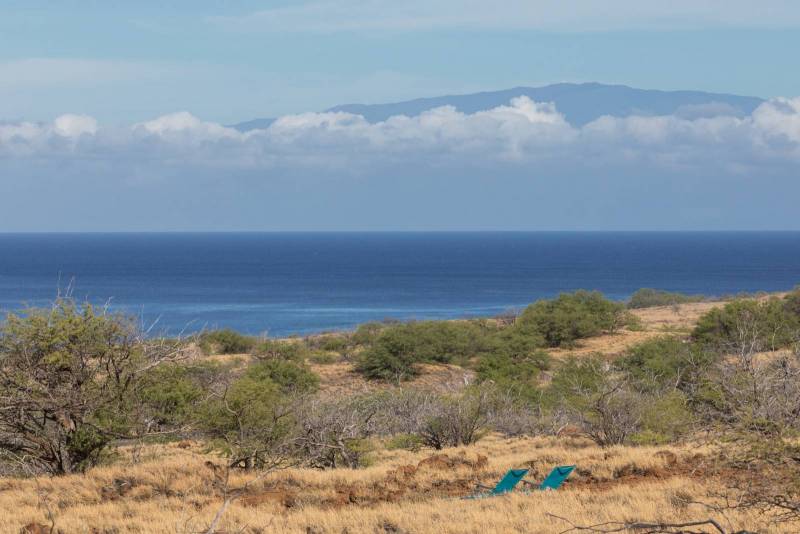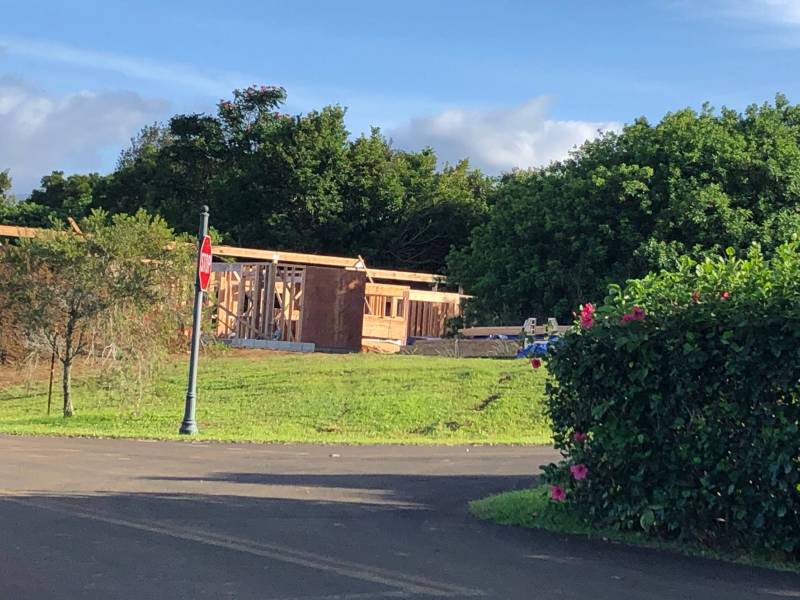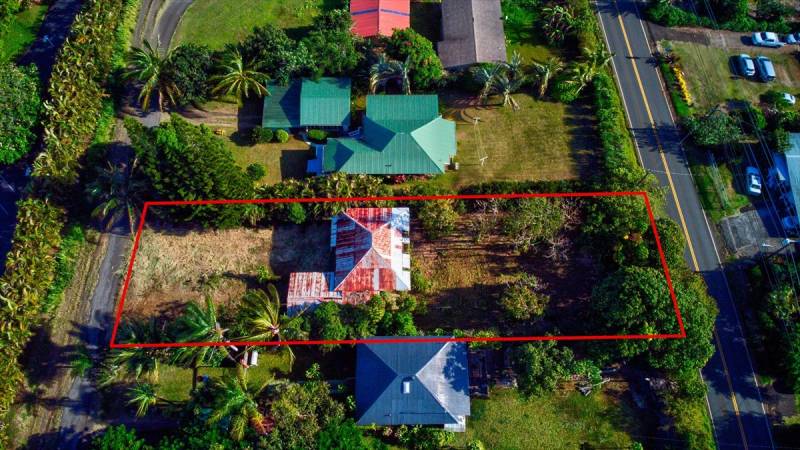Vacant Lot and Construction Loans for Local Hawaii Island Buyers
I have written several times about financing options for vacant land in Hawaii. I keep getting questions about the difference between buying with a land loan and a land-and-construction loan, as well as basic requirements (they are not the same as getting a conventional residential mortgage).
The programs offered through our Hawaii Island credit unions can be options for local residents who may not have known it was possible for them to qualify to buy vacant land and build their first home. (If you are not already a resident, the credit unions will not lend to you, but there are other vacant lot programs available).

Look for lots outside of subdivisions so you avoid lengthy design review requirements if you want to use a land-and-construction loan to purchase. This listing at Kaiholena with ocean and Maui views might work.
How a Vacant Land Loan Compares with a Home Mortgage
Buyers often start off with the misconception that the terms for vacant land loans will be similar to what they have in mind for residential mortgages. In fact, the terms are quite different.
- Residential mortgages with conforming loans require 20% down (80% loan-to-value to be correct); certain first time home buyer programs have much lower down payment requirements. Land loans usually have a 70% loan-to-value requirement, meaning you put 30% of the purchase price/appraised value down.
- Residential mortgages typically have terms of 15 or 30 years and are “principal and interest.” Land loans typically have terms of 3 or 5 years and are interest-only with a balloon (the entire principal due) at the end.
- With residential mortgage interest rates at historic lows, you might find home loans quoted under 3%. Land or construction loan rates could be 8% or higher.
How Construction Loan Terms Compare with a Land-Only Loan

Home under construction in the Hanaula Village subdivision in Kapaau, North Kohala.
Here are how terms for a construction loan compare with vacant land loans and residential mortgages:
- Construction loans will require 80% loan-to-value on the appraised value of the home to be built. That might translate into little or nothing down on the lot. Iʻll explain in a minute how that magic would be possible.
- To minimize the lenderʻs risk on changing market values before the home is finished and the loan converts to a standard mortgage, the term of the construction loan is only 12-18 months.
- Construction loan rates will be similar to vacant land loans and are interest-only. You will get a lower residential rate and a longer term when you convert to a conventional home loan.
- Because the lender will require you to have a licensed contractor bid on the cost of building your home and actually get building permits, the loan process will take 150-180 days, so you need a patient seller. And you will pay out of pocket for permit costs before closing.
The requirement for having all permits before the loan funds and you close escrow is why construction loans are not usually a suitable option for buying lots in a community like Kohala Ranch, which requires an architect to design the home and an extensive review process. It might be an option if you found a lot where the seller had already obtained building permits and architectural review approval. And you could buy the land and then get a construction loan to build.
Why Construction Loans Can Work for First Time Local Buyers

The Hawi house in this photo will be demolished this month; the 13,845 sq ft lot is being sold as vacant land.
The best situation would be one where a local family owns a parcel of vacant land, and the younger generation has the income to pay a mortgage but does not have the money to finance construction of a home. Instead, letʻs imagine that there is a vacant lot you can buy for $200,000 (this is the price point for the most recent lots sold in Hanaula Village, for example.) And you are happy to go with one of the locally styled package home options.
Here are two hypothetical scenarios. I am grateful to the loan officer at Hawaii First Federal Credit Union in Waimea for explaining how their program works.
Minimal Down Payment Scenario
2019 Hanaula sold home price for 1,400 sq ft new home: $580,000
Maximum borrowed at 80% loan to value: 464,000
Cost of lot: -200,000
Cost of construction at $178/sq ft : -250,000
Remaining “equity”: $14,000
This equity could be used to pay closing costs…or even used to pay down the borrowerʻs credit card debt or car loan to make carrying the interest-only loan during construction easier.
Low Down Payment Scenario
What if the home construction costs come in at $200/sq ft or $280,000? Now you have used up all your equity, and will need to come up with $14,000 plus closing costs. Suppose that total is $20,000. That is still only 10% of the purchase price of the lot… compared with the 30% you would need to put down for a vacant land loan.
While looking at vacant land online is more fun, sitting down with a local lender to go through your financial picture and get an idea of what you can afford is the best place to start. As the price of starter homes keeps rising, the option of buying a lot and building will be increasingly attractive for qualified buyers.


David Mackowiak
September 4, 2020
I would like to see about buying a place for my family do t know if we could qualify but would like to see how we can qualify please let me know what we can do to check out what we can do thank you
Beth Thoma Robinson, R(B)
September 4, 2020
> Hi David, as mentioned in my post, the best way to start is to talk with a mortgage broker or lender at your local credit union or bank. Please feel free to email me or give me a call if you need some names.